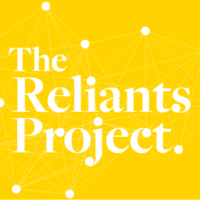
Podcast: Play in new window | Download
Janice is an associate professor of sociology at Dartmouth College and author of Connecting in College: How Friendship Networks Matter for Academic and Social Success. Her research explores how students make and keep friends as well as how their friendship networks help or hurt their academic and social success.
Request an introduction to Janice from Erica
- We talk about the different types of friend network structures she found among students in her research
- And how those structures impacted the college experience of those students
- We talk about how both gender and race show up in the context of her work
- She explains what it means to have multiplex ties and how they help students maintain friendships over time
KEY NETWORK SCIENCE CONCEPTS
SHOW NOTES
- Janice authored the book “Connecting in College: How Friendship Networks Matter for Academic and Social Success.” What initially attracted her to these concepts in friendship-specific network structures? [1:50]
- What are the foundational questions and interests Janice addressed in her book? What patterns came up and how did the focus adapt with her research? [4:27]
- The 3 network types that Janice found in her research were the tight-knitter, the compartmentalizer, and the sampler. What are the intricacies involved in each of these kinds of friendships and what network shapes do they embody? [8:28]
- People often ask which network type is “best.” What are the different considerations involved in answering this question on an individual level? [11:55]
- Janice recalls a specific case study of a gay Mexican fraternity student with many tight-knit academic multiplex ties, and discusses how this kind of support can be so widely beneficial. What are “multiplex ties” and how do they offer a deeper level of support within friendships? [15:50]
- How did race show up in the context of this research? What were the general racial backgrounds of the sample pool and what does this help us understand about the nature of friendships among Black and Latinx students? [17:38]
- Bluebox: Erica discusses the network science concept of Six Degrees of Separation and the small world problem explored by researcher Stanley Milgram [20:46]
- What are some questions raised by Janice’s college friendship research? [22:36]
- Why has Janice started using the actual university names since her book, which featured an anonymously titled university? What considerations went into deciding these universities for new research? [24:30]
- How has Covid-19 impacted Janice’s research? [25:56]
- How do the student subjects involved interact with Janice’s research and findings? What is the process of gathering data and how do the students react to it? [27:17]
- How can we apply this knowledge to non-academic settings? There are quizzes available online for anyone to learn about their own friendship network type. How can we interpret this information for ourselves to leverage or change our network types? [31:47]
- How does this research address strong or weak ties? [36.28]
- How does Janice see her research manifest in her own life? What lessons does she more personally hold onto? [37:50]
- Are there particular archetypes of individuals that come into play between the different friendship network types? [40:43]
- Janice recalls weak ties that had a big impact in her life as a Women’s Studies major at Tulane University [43:51]
- What are the intricacies of best-friendships? What role does gender play and how is Janice exploring the topic? [45:31]
- How does the quantitative data support the qualitative data of Janice’s research and vice versa? [46:05]
- Closing Notes [46:56]
SELECTED LINKS FROM EPISODE
Connect with Janice McCabe – Linkedin | Dartmouth | Book
- Indiana University
- Dartmouth
- University of New Hampshire
- UNH Manchester
- Six Degrees of Separation
- Tulane University
PEOPLE MENTIONED
